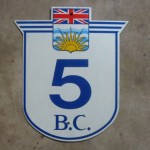Recently we placed a few new puzzle caches which fall under the category of mystery/unknown caches. Or to those not in the know, that big question mark (?). We got wondering how many caches in our area belonged in what part of the D/T (difficulty/terrain) matrix.
It was quite interesting to see where there were deficiencies and where there were way too many. Of course, these puzzles aren’t all that easy and may be a bit mind numbing the more you look at them.
My query was, how do I make it so other cachers will stay interested in actually trying to figure out these puzzles.
AHA! The D/T matrix with lower values in our area. Or even a larger region.
So I sought out to find what this matrix looked like in our area and this may help other cachers determine what sort of hides would help other cachers as well. Firstly, we needed to determine what this matrix looked like in our area.
We are located in Ontario Canada so we decided to create a D/T matrix of Mystery caches in all of Ontario. This could give us a better insight in to what could make these puzzles more desirable.
Below is the matrix. It was up to date as of September 5th 2020.
Mystery/Unknown Cache matrix
| Ter | ||||||||||
| D/T | 1 | 1.5 | 2 | 2.5 | 3 | 3.5 | 4 | 4.5 | 5 | |
| 1 | 24 | 34 | 23 | 11 | 14 | 9 | 8 | 7 | 9 | |
| 1.5 | 25 | 622 | 279 | 92 | 29 | 17 | 19 | 9 | 12 | |
| Diff | 2 | 39 | 470 | 595 | 202 | 87 | 39 | 26 | 13 | 14 |
| 2.5 | 50 | 395 | 330 | 188 | 76 | 43 | 23 | 27 | 21 | |
| 3 | 45 | 398 | 329 | 149 | 105 | 41 | 38 | 26 | 16 | |
| 3.5 | 43 | 237 | 172 | 117 | 63 | 54 | 20 | 22 | 12 | |
| 4 | 43 | 218 | 164 | 112 | 69 | 47 | 39 | 27 | 24 | |
| 4.5 | 49 | 105 | 100 | 86 | 39 | 43 | 42 | 24 | 22 | |
| 5 | 50 | 76 | 87 | 76 | 57 | 57 | 40 | 43 | 43 |
As you can see. The difficulty 1’s are some of the least placed Mystery caches. We were actually amazed to see that Terrain 1 caches were actually quite plentiful considering they should be accessible to everyone.
We initially thought that creating a 5/5 cache would be the preferable placement. You can imagine, our surprise when we seen that there were actually 43 in play.
Now when we look at the 3 and 3.5 difficulty ratings, we see that the terrain 5 caches were 16 and 12 respectively. These may be a good way to get those cachers that require these ratings to not give up trying to solve the puzzle.
There are many other ratings that cachers may need for different challenges and this could be a great way or a detriment to their caching styles!
To conclude, we had to spend a bit of time to gather these stats but they gave us a very different outlook on how we may end up creating some new caches.
What D/T did we end up using you might ask? Well… that is for you to figure out!



